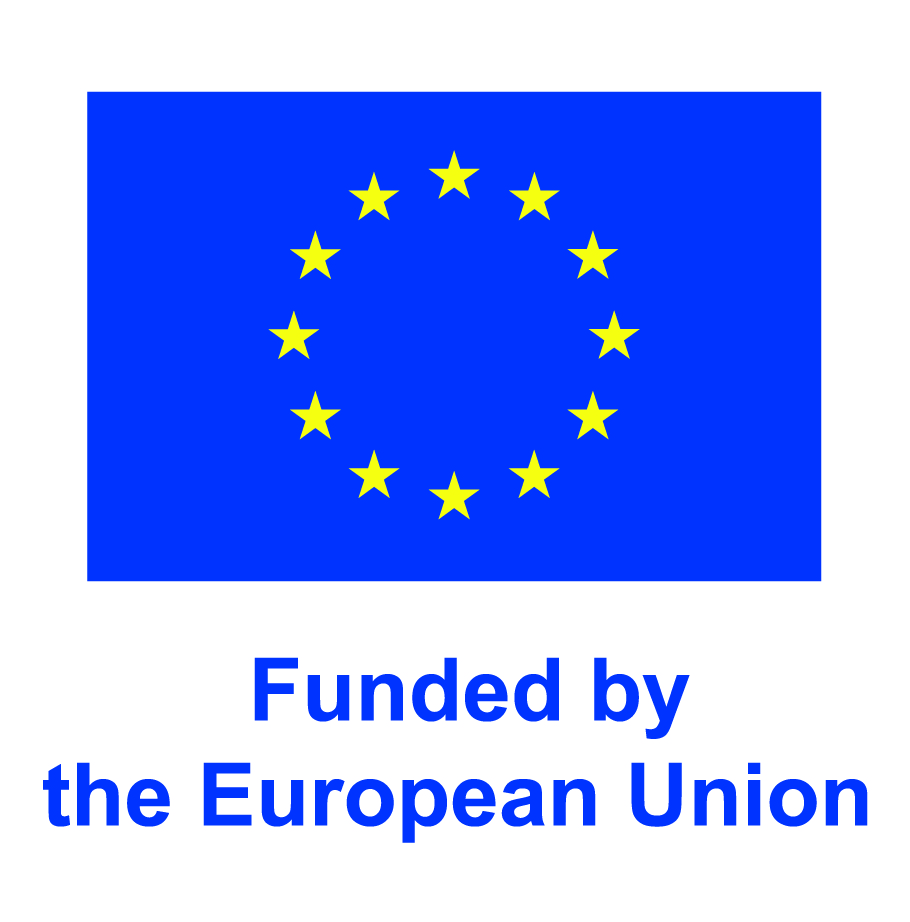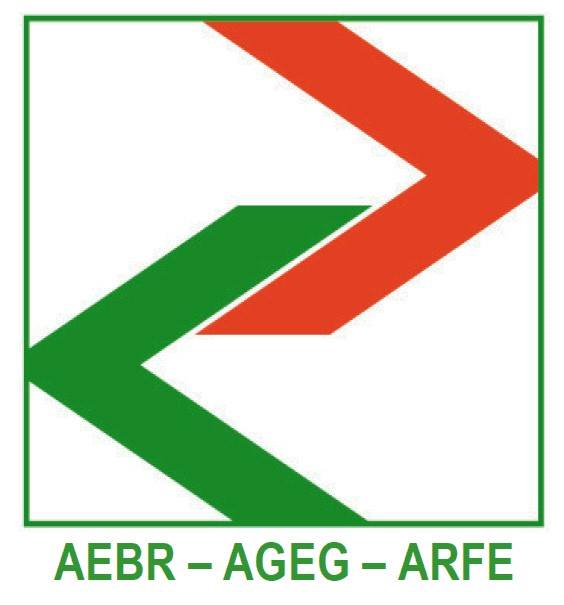My Experience as an IVY Volunteer in the CROSUSMOB Project
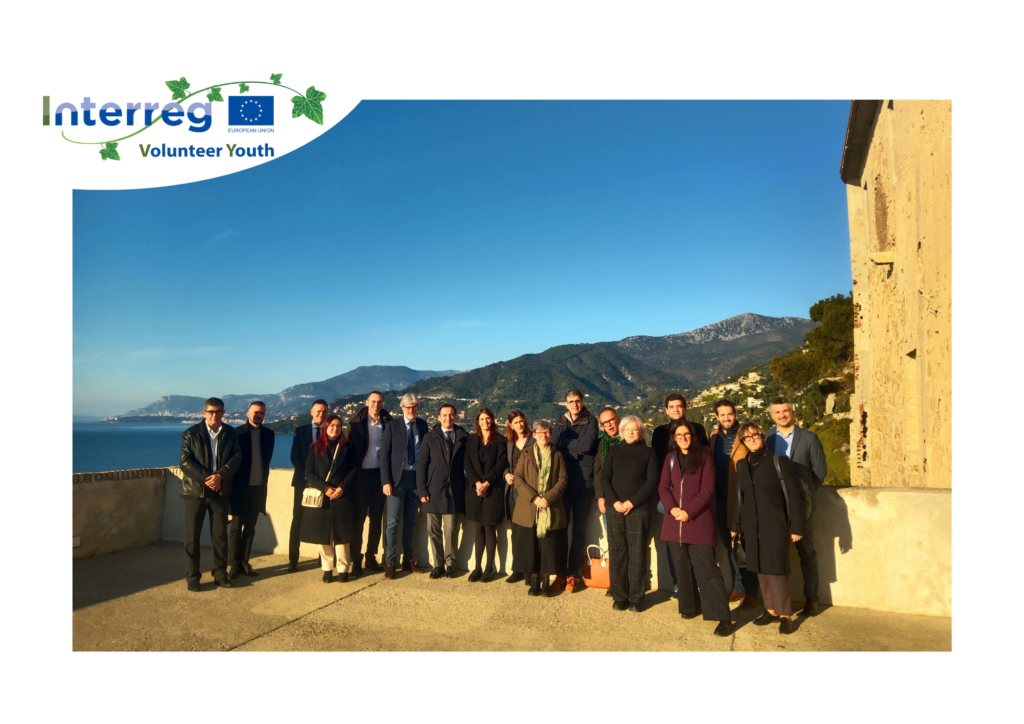
I started my volunteer experience in mid-October 2024 with Xavier Garcia at the Région Sud in Nice, working on the Interreg project CROSUSMOB – Fostering Sustainable Cross-Border Mobility. The project began in April 2024 and will run until June 2028, and I am proud to be the first IVY volunteer on this initiative! What is CROSUSMOB? CROSUSMOB is a European cooperation project aimed at improving policies at local, regional, and national levels to overcome cross-border mobility barriers. It brings together five public partners from different regions: Basque Country (Spain) Institute of Traffic and Transport Ljubljana (Slovenia) Province of Drenthe (Netherlands) Provence-Alpes-Côte d’Azur Region (France) KTI Hungarian Institute for Transport Sciences and Logistics (Hungary) Project Objectives The key objectives of CROSUSMOB are: Establishing Cross-Border Transport Strategies: Ensuring that cross-border mobility is integrated into regional and national policies to better address local needs. Enabling Cross-Border Travelers: Encouraging citizens to contribute to sustainable, resilient, and intelligent intermodal transport systems. Simplifying Public Transport: Making sustainable transport the most attractive option by improving pricing, timetables, and connections. Modernizing Infrastructure: Expanding the availability of cross-border trains and promoting digitalization, interoperability, and infrastructure upgrades. My Role in the Project The project is structured into semesters, each with specific objectives. During the first semester, the main goal was to launch the project and establish communication channels. My task was to set up and manage the project’s social media accounts (LinkedIn, X), create a newsletter, and ensure that each partner met their communication obligations. We are now in the second semester, where the focus is on conducting regional diagnoses. This involves analyzing the mobility and transport landscape in each partner region to identify challenges and opportunities. I am currently working with my tutor on the territorial diagnosis for the Provence-Alpes-Côte d’Azur region, particularly in its cross-border connections with Italy (Liguria and Piemonte regions). This includes evaluating train services and cross-border mobility policies. What I’ve Learned and Enjoyed This project has taught me a lot about the communication needs of European projects and how to implement them effectively. My current tasks align perfectly with my academic background and skills, allowing me to move from theoretical knowledge to real-world application. Collaboration with partners is essential in this project. We hold regular online meetings and organize field visits each semester in a partner region. The first visit took place in Bilbao (Basque Country) in October 2024, and the second will be held in Aachen (Germany) in March 2025. In 2026, Nice will host one of these visits, which will be an exciting opportunity for my team to showcase our progress and for the future IVY to meet the team in real life. Being part of CROSUSMOB as an IVY volunteer has been an enriching experience, allowing me to contribute to an important initiative while gaining hands-on experience in European project management. I look forward to continuing my journey and seeing the project’s impact on cross-border mobility! – Carla, IVY Project Partner at Region Provence-Alpes-Côte d’Azur – SUD, for the Interreg project CROSUSMOB, under the programme Interreg Europe. Learn more about Région Sud Click Here Learn more about INTERREG Project CROSUSMOB Click Here
Volunteering with Interreg Volunteer Youth (IVY)
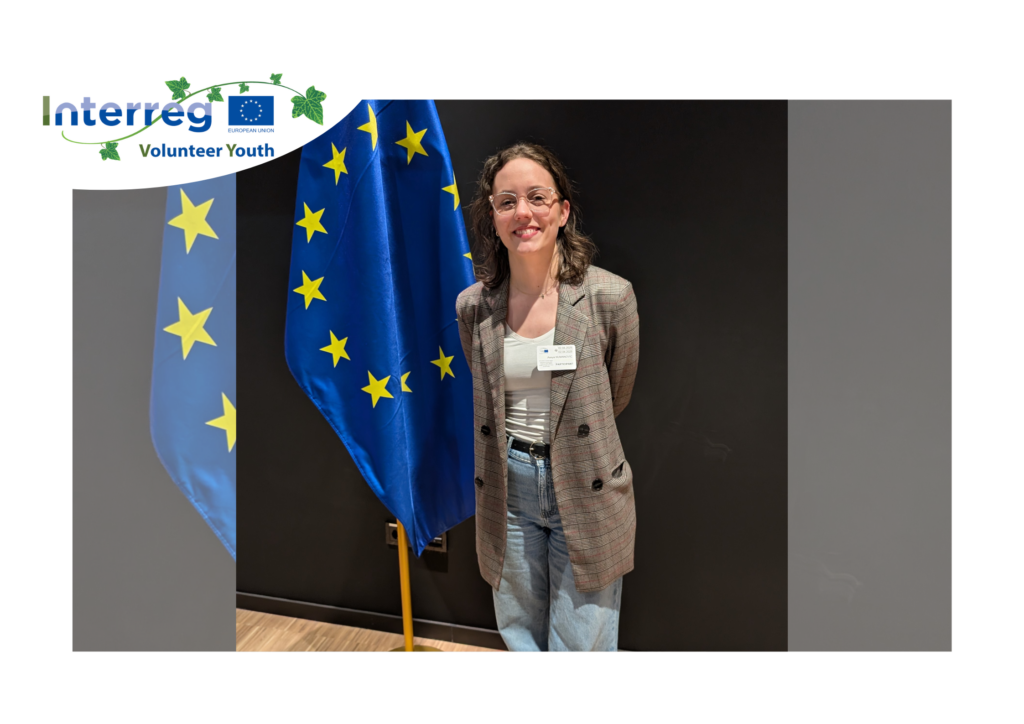
Hi! My name is Assya and I am the first IVY volunteer to join the Interreg Greater Region Programme team at the House of the Greater Region in Esch-sur-Alzette, Luxembourg. I recently completed my studies with a Master’s degree in Border Studies. As abstract as it may seem, it is a field in which I found myself very comfortable, having grown up in the cross-border region between the French Moselle and Luxembourg and being quite familiar with borders. During this cross-border Master programme, I had the opportunity to study in three languages, at four universities and in three different countries. This experience was my first contact with Interreg and the Greater Region (Belgium, France, Germany and Luxembourg). Over the course of these two years, I realised that the cross-border region in which I had grown up extended to a much larger territory, that of the Greater Region, and that my opportunities were expanding at the same time. After this period of intense mobility, I now have the opportunity to settle down in Esch-sur-Alzette, Luxembourg, at the House of the Greater Region, for a six-month experience where I will support the Interreg Greater Region Programme team in various tasks. As an IVY Reporter, my objective is to promote the projects supported by Interreg in the Greater Region, the role of the Interreg Greater Region Programme, while emphasising their objectives and results, in order to bring the local population closer to the projects but also to inform them about the possibilities offered by Interreg in their territory. Cross-border cooperation opened doors for me and brought me many opportunities because I was lucky enough to have been informed at the right time. So, I would like the local population, especially young people, to be equally well informed and aware of the opportunities they have in their territory, in terms of social, cultural, educational and professional life. The idea is to strengthen community life a little more by promoting cross-border cooperation and solidarity. A little work about my first steps: On the third day, I had the opportunity to take part in the meeting of the monitoring committee for the third call for projects 2021-2027, which took place at the Luxembourg Ministry of Housing and Spatial Planning. All the stakeholders were present: the managing authority, the project managers, the partner authorities from the four countries, the contact points and the functional areas. This allowed me to see the internal process of setting up Interreg projects, to understand how they are built, why the partner authorities agree for them to be set up or what they lack in order to receive the funds. So, barely three days in, I already feel like I’ve learned a lot. I can’t wait to see what’s coming next! I will try to share as much as possible about the stages of this six-month adventure through articles and posts on social networks, follow us! https://www.instagram.com/interreggr/ https://www.linkedin.com/company/interreggr/ https://www.facebook.com/interreggr – Assya, IVY Reporter at the MA Interreg V-A Grande Région Learn more about Interreg Greater Region Programme Click Here Learn more about House of the Greater Region in Esch-sur-Alzette, Luxembourg. Click Here
My Role in the Baltic Cider Project: Strengthening Rural Tourism and Regional Collaboration
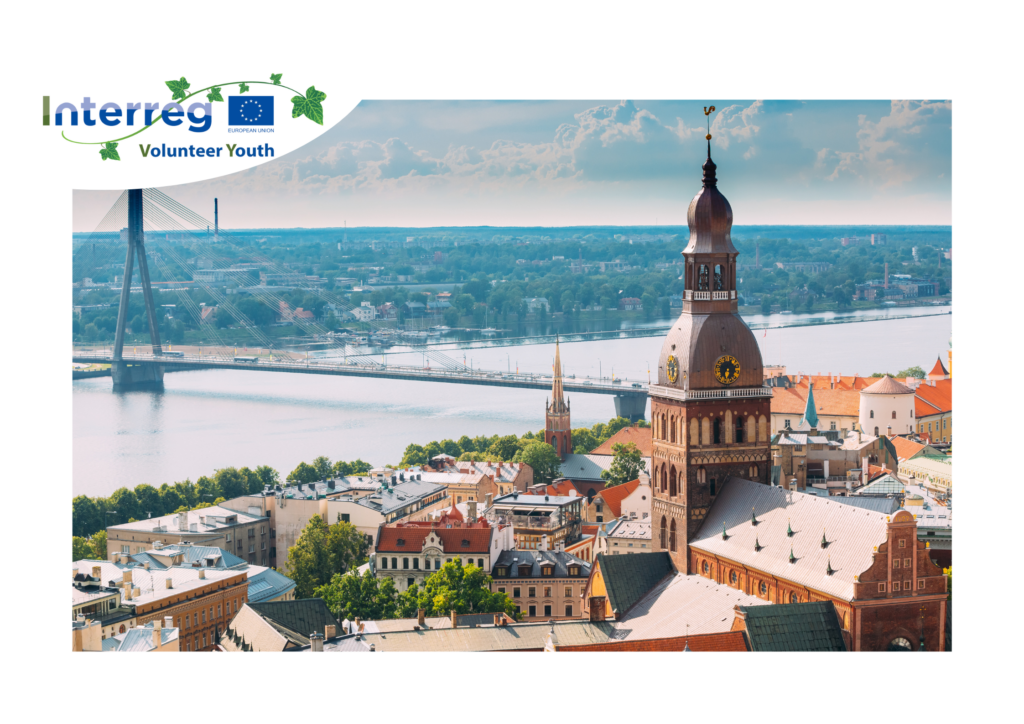
Hey, readers! I’m Krista Krage, an IVY Project partner, and I’m thrilled to share that I’ve joined the Latvian Country Tourism Association “Lauku Ceļotājs,” an organization dedicated to promoting rural and nature-based tourism in Latvia. Through this exciting collaboration, I’ve become part of the Baltic Cider project, which is supported by the Interreg Estonia-Latvia Cross-border Cooperation Programme 2021-2027. This initiative aims to create a powerful regional cider brand by connecting local cider makers, encouraging innovation, and integrating sustainable tourism in both Latvia and Estonia. As part of my role, I’ve had the opportunity to explore the Cider Route—a unique tourism project that connects cider producers throughout both countries. The route allows visitors to not only taste ciders but also immerse themselves in the local landscapes and traditions that make each producer’s cider distinct. I’ve learned so much about the different practices, the people behind these brands, and the stunning natural locations where many of these cider makers are based. Another exciting thing will be our participation in CiderCon 2025, the largest cider conference in the U.S. Here, we’ll showcase Latvian ciders to an international audience and introduce two standout producers, Abuls and Mūrbūdu, who blend traditional methods with innovative techniques. I’m incredibly proud to be part of this project and to witness how it’s bringing cider makers together, encouraging collaboration, and strengthening the growing cider community in the region. It’s inspiring to be involved in an initiative with so much potential for growth—not only for the cider industry but also for local tourism. Plus, we’ll soon be working on refreshing the Baltic Cider website to make it easier for people to discover and explore the exciting cider scene in Latvia and Estonia! – Krista, IVY Project Partner at Latvian Country Tourism Association “Lauku celotajs”, for the Interreg project BALTIC CIDER, under the programme Interreg Estonia-Latvia. Discover more about Baltic cider project Click Here Discover more about “Lauku Ceļotājs” association Click Here
IVY experience by sharing…
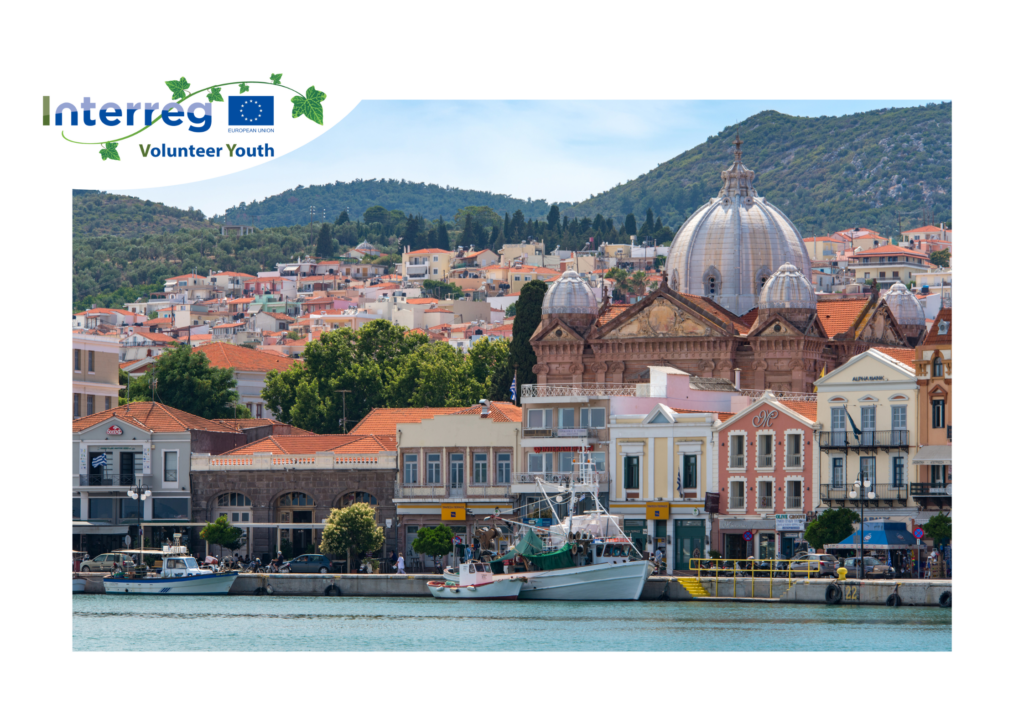
Hello everyone! My name is Myrsini and I am an Interreg Project Partner in the island of Lesvos, in Greece. Like other European countries, Greece participates in this initiative of The Shared Mobility Action Programmes Exchange (SMAPE). Specifically, The Regional Development Fund of North Aegean (RDFNA) is working to promote the use of bike-sharing systems across all nine islands of the region. RDFNA is organizing the municipalities of the smaller islands under a common network, empowering them to implement shared mobility hubs on the sparsely populated islands of Agios Efstratios, Oinousses, Psara, Fournoi, and Thimena, islands where travelling by car is neither convenient nor easy. Because of their location and difficulty of access, the smaller islands are often pushed aside by other more desirable holiday destinations. The Shared Mobility Action Programmes Exchange (SMAPE) project aims to enhance shared mobility policies. Specifically, the project focuses on integrating shared mobility with public transport and Mobility as a Service, utilizing data (dashboards) for monitoring and policy adjustments, promoting data sharing, influencing attitudes and behavior, optimizing the mix of mobility modes, developing regulations and frameworks for public-private partnerships, and providing policy recommendations. Additionally, it contributes to Sustainable Urban Mobility Plans (SUMPs). The main objective of the project is to make the mobility programme as widely spread as possible, to inform as many people as possible, both from Greece and from other European countries, and to promote in this way the solo traveling initiative which seems to concern more and more travelers. To better organise and coordinate the action, as well as to keep all parties fully informed, we are organizing a summer workshop for the consortium members in June, here in Mytilene. Up until today, and during the past two months since I started my internship at RDFNA, I have participated in various meetings with the project stakeholders, been involved in selecting the venue for the workshop and assisted in organizing the agenda. Additionally, I took part in organizing the information for the financial report of the project’s 4th semester. Finally, I was asked and agreed to read the technical document promoting shared mobility and provide my opinion. This is something I will do in the next two weeks. From early April until June 23rd, I will assist in preparing for the workshop, and I will be present for the entire duration of the workshop from June 23rd to June 27th. Overall, my work at RDFNA provides me with new knowledge, and the work environment is warm, collaborative, and collegial. – Myrsini, IVY Project Partner at Regional Development Fund of North Aegean, for the Interreg project SMAPE, under the programme Interreg Europe. Read more about RDFNA. Click Here Read more about SMAPE project. Click Here
Preserving History Through Tourism
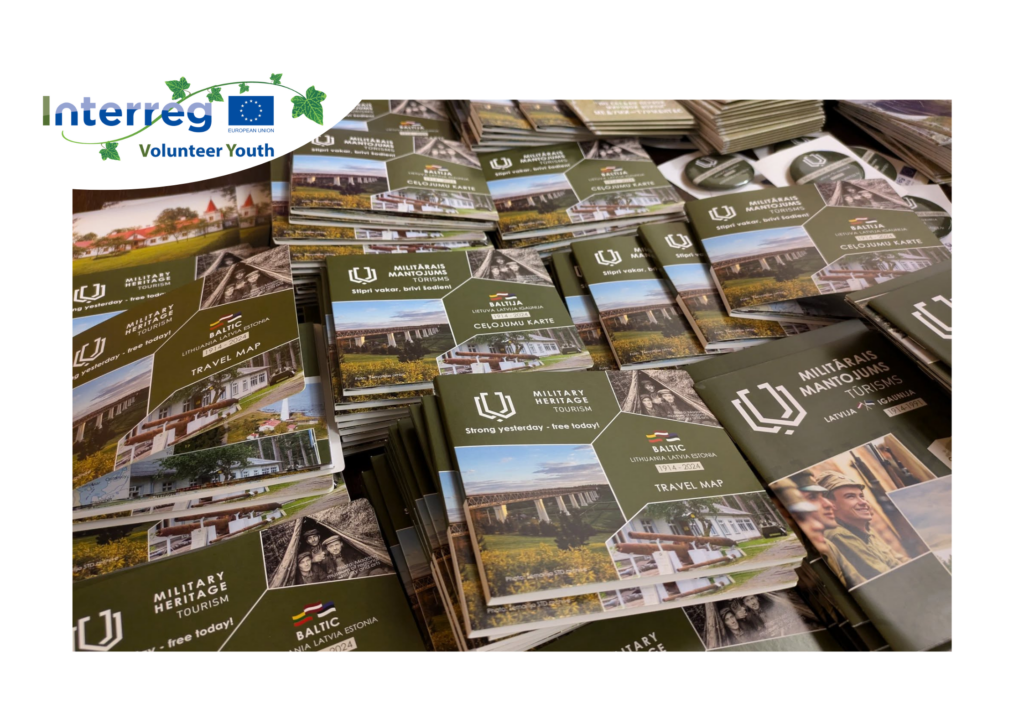
For the past 2.5 months, I have been volunteering in the Lithuanian Countryside Tourism Association as part of the Interreg Volunteer Youth program. My work focuses on the Military Heritage project, which promotes historical sites across the Baltic region and helps preserve them for future generations. This project is a great example of EU cooperation, supporting local communities and smaller regions by attracting tourism and increasing awareness of their historical significance. Given the ongoing situation in Ukraine, the topic of military heritage is more relevant than ever—it reminds us of the importance of learning from history. My experience so far has been incredibly dynamic and engaging. In early January, I participated in a major conference in Riga, where experts gathered to discuss military heritage preservation. At the end of January, we promoted the project at a tourism exhibition in Vilnius, reaching a broad audience. One of the most exciting aspects of my role has been traveling with my mentors to inspect historical sites, it is really interesting learning experience. Although my time in the project is not yet over, I already see the impact of this initiative. I look forward to the months ahead and the opportunity to contribute even more to this project! – Kristijonas, IVY Project Partner at Lithuanian countryside tourism association, for the Interreg project Military Heritage II, under the programme Interreg Latvia-Lithuania. Learn more about the Lithuanian Countryside Tourism Association Click Here Learn more about Interreg Latvia – Lithuania Click Here
Reporting from my IVY experience in Nouvelle-Aquitaine
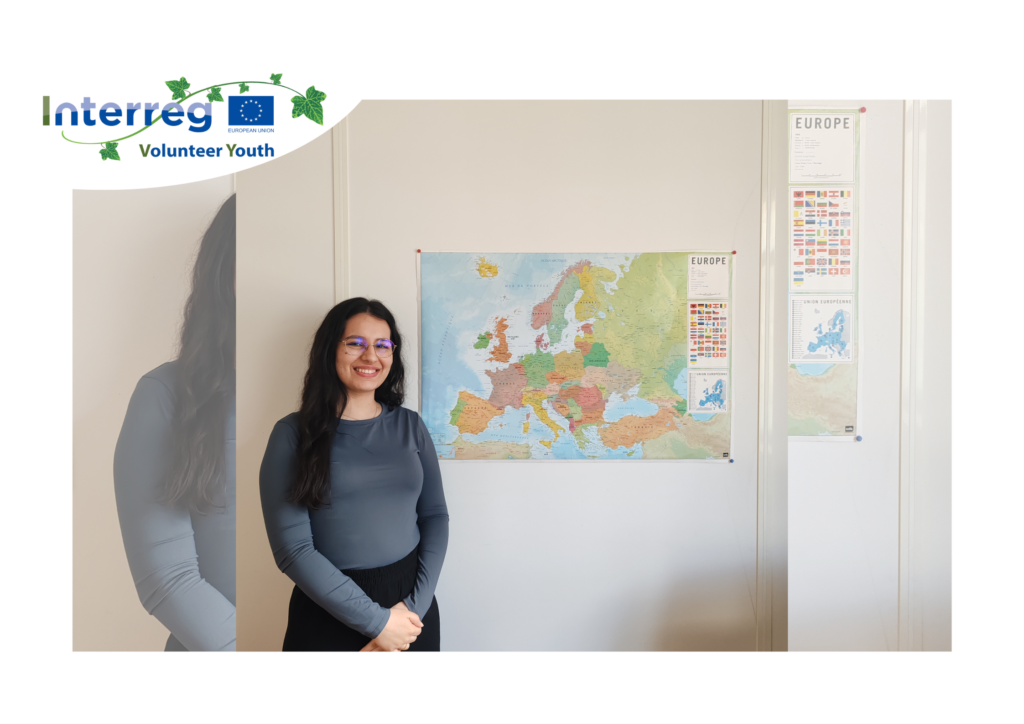
When I first started my volunteering, I already knew a little about the Interreg Programs, but it wasn’t until I started contributing to them through the Regional Council in Nouvelle Aquitaine that I understood their extent and impact. Something to highlight about my host organization is that they take part in four Interreg Programs, therefore I’m lucky enough to be discovering them as well as European cooperation through my IVY Reporter role. So far, I have been participating in two of them: Atlantic Area and SUDOE. The Atlantic Area (AA) covers the western part of the Atlantic Ocean and includes all regions of Ireland and Portugal, as well as several French and Spanish regions close to or on the Atlantic Ocean coast. Due to the AA’s geographical and maritime characteristics, the challenges that it aims to tackle are balanced economic development and climate change. This characteristic, jointly with the coast-hinterland interrelationships, corresponds to the main approach to the Program’s conception. Interreg SUDOE is a European Union funding program to support regional development and cohesion in the regions of south-west Europe. To address the common challenges faced by the SUDOE regions, such as climate change, social cohesion and territorial balance, it supports cooperation projects between entities in the Member States that make up this area. The Programs support public and private entities that act together to build solutions that address the transnational challenges of these vast territories in order to improve the quality of life of citizens. What have I been up to? During this time, I began by getting to know about the Programs and the projects they fund, to understand their main objectives, the principles and the results expected from the cooperation so I can communicate about it. I also had the opportunity to assist in French and cross-border meetings where I could observe how the partners exchange and work together. This has been immensely interesting and helpful to deepen my insight on European cooperation. In addition, I’m currently elaborating summaries of projects for the Atlantic Area Program that will be useful to communicate about them. By participating in this task, I have had the opportunity to know more in detail about the different projects, their goals and discovered the broad themes the Program covers. One of my next missions will consist of creating catalogues with summaries of projects from these Programs to publish via different communication tools and share the results in Nouvelle-Aquitaine. What do I enjoy the most? Getting to see how different cooperation Programs and projects develop is very enriching. This experience is helping me enhance my abilities in communication and knowledge about cooperation. I am also enjoying learning about different projects that I get to contribute to because it can be very inspiring, especially the cultural and climate change ones since those are the topics that I personally like the most. – Ana Cecilia, IVY Reporter for the Interreg Atlantic Area and Interreg SUDOE Discover more about Interreg Atlantic Area Click Here Discover more about Interreg SUDOE Click Here Discover more about Regional council in Nouvelle Aquitaine Click Here

